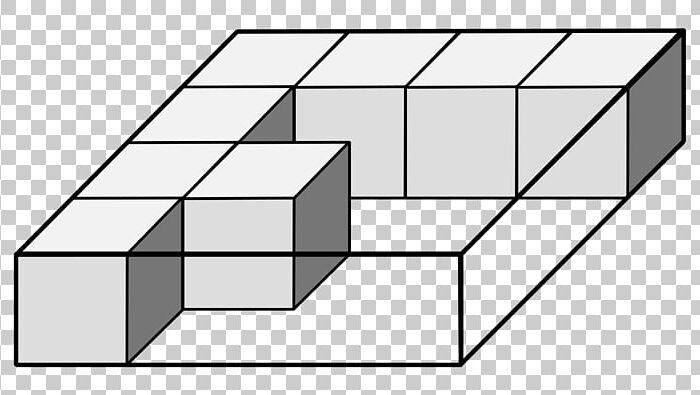The education system is a complex mechanism that includes numerous facilities and tools. There are many people engaged in this sector that try to make learning better adjusted to contemporary reality. Modern education demands innovative approaches that can enhance students’ performance and achievement in the academic field. At the same time, besides the direct delivery of knowledge and skills, it has to fulfill other functions. The education system in the age of information has numerous purposes. Each of them significantly contributes to the wellness of young people and prepares them for adulthood.
A better vision of the world
A proper education system adjusted to modern reality helps to understand the world in a more effective way. Many students necessitate not only discipline-related knowledge but also insights about such important areas as politics, history, culture, and others. The comprehension of the mentioned spheres allows young people to become full-right social members. They can support various conversations, make better life choices, advocate for positive changes, and maintain a healthy and well-balanced routine. Education assists individuals in analyzing what happens in the world around them and how these events may affect an ordinary person. This knowledge is crucial for survival in contemporary society where things quickly change. Only those who can use their knowledge and understanding of the world can achieve success and avoid failures.
Career growth and promotion
The contemporary education system significantly helps those who want to become good professionals and contribute to the social good. Those who study hard and overcome academic challenges have more chances of getting a prospective job and career promotion. These benefits open up the road for a successful and wealthy life. Moreover, the modern system of education while operating in the information age prepares students for the use of technology advances. The adjustment of innovations and digital tools is important for any professional. The education system focuses on explaining these technologies, their value, and their practical use.
Defining trustworthy information
In the information age, it may be difficult to identify inaccurate facts. Some people purposefully publish false information. There are many cases of using propaganda to persuade the community on particular issues. The modern system of education envisions the mentioned problem and strives to make students prepared for these risks. Each young person learns critical thinking and analytical skills. In this way, students can not only acquire information but also filter it and understand what is right and wrong. Well-educated individuals always have their personal opinion and vision of the events.
Reducing plagiarism
Plagiarism is a key problem for academic integrity as it diminishes the effort of original authors and causes the collapse of education. Numerous students resort to this unlawful activity because of the need to complete homework. They are lazy or experience a lack of knowledge. Many individuals ask: How do schools check for plagiarism? Present-day educators are aware of the risks. Thus, plagiarism software for schools is based on innovative technology. It covers numerous online resources of data and detects the signs of copied information. These instruments are difficult to avoid. Modern education attempts to demonstrate that students should not resort to plagiarism. This activity leads to negative consequences such as low grades and teachers’ disapproval. In a more serious academic setting, the individual caught with plagiarized work may receive a poor reputation and be excluded from the research community.
Fostering research skills
While employing plagiarism checkers for schools, teachers receive the opportunity to foster research skills among students. Young people are scared of the possible punishment for copying information. This issue motivates them to learn more academic materials, accumulate knowledge, and conduct their own studies. Being a good researcher guarantees success at university or while receiving a Ph.D. degree. Moreover, these skills help to become an advanced professional in most occupations. Contemporary schools try to encourage young people to research various issues. While starting from small projects, these intentions later transform into ready-made studies with all necessary sections.
The creation of moral values
Modern education also attempts to create particular moral values and demonstrate to students how to behave in an ethical manner. Teachers do not simply deliver materials on their discipline. They assist young people in learning fundamental moral principles that later form the basis for their conduct. Students understand how to differentiate between right and wrong. The best education makes one not only a good professional but also an ethical and kind person who follows a certain code of behavior in the community. Education demonstrates the importance of such phenomena as empathy, friendship, love, and respect. Hence, students comprehend how to act in different situations.
Socialization and communication
Socialization is another important purpose of education in the informational age. As people become more engaged in digital networks and online communities, they may fail to produce enough social contacts in the real world. Students are at risk of being addicted to virtual websites. They do not socialize with their peers and cannot effectively communicate with them. The overuse of social media leads to grave consequences for their mental health. Education assists in filling the occurring gap in real-life communication. Students who attend classes can make useful contacts with peers and enjoy socialization activities.
Cultural competency and inclusion
The contemporary education system fosters cultural awareness and competency. It demonstrates the importance of inclusion and diversity. Often, classrooms unite the representatives of different nationalities and ethnicities. Schools teach students how to behave in society and approach other cultures. Thanks to the attention to diversity and inclusion, young people learn how to prevent hatred and discrimination. They understand the significance of equality and contribute to its maintenance in a world that is filled with racial violence, misogyny, and other adverse phenomena.
Conclusion
In conclusion, modern education delivers sufficient help to students in the information epoch. Young people can learn many essential skills and gain valuable knowledge. They understand the cause and effect of various worldwide problems and events. Moreover, the youth becomes more conscious and empathic. At the same time, present-day schools prepare students for adulthood and its challenges by teaching them key moral values and codes of ethical conduct.




